Trainee Technician
40+ Trainee Technician Interview Questions and Answers


Q. How many problem-solving documents are you familiar with?
I am known for several problem solving documents.
I have created and maintained problem solving documents for various technical issues.
I am familiar with troubleshooting guides, FAQs, and knowledge base articles.
I have experience in documenting solutions for software bugs, hardware malfunctions, and network problems.
I have also collaborated with team members to create comprehensive problem solving resources.
Examples: Troubleshooting guide for printer connectivity issues, FAQ d...read more
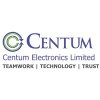
Asked in Centum Electronics

Q. Symbols of capacitor, J-FET,MOS-FET & Transformer working principle.
Capacitor, J-FET, MOS-FET & Transformer symbols and working principles.
Capacitor symbol: two parallel lines with a space between them. It stores electrical charge.
J-FET symbol: a gate connected to a channel. It controls the flow of current.
MOS-FET symbol: a gate between two channels. It amplifies or switches electronic signals.
Transformer symbol: two coils with a core. It transfers electrical energy from one circuit to another.
Capacitor principle: stores energy in an electric...read more
Trainee Technician Interview Questions and Answers for Freshers
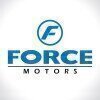
Asked in Force Motors

Q. What is the least count of Vernier calipers?
The least count of vernier calipers is the smallest measurement that can be read on the scale.
It is determined by the number of divisions on the vernier scale and the main scale
It is usually expressed in millimeters or inches
For example, a vernier caliper with 20 divisions on the vernier scale and 1mm on the main scale has a least count of 0.05mm
It is important to consider the least count when taking measurements to ensure accuracy

Asked in Brembo Brake India

Q. What is the least count of a height gauge, and where is it used?
Height gauge l.c is the smallest measurement that can be read on a height gauge. It is used to measure the height of objects.
l.c stands for 'least count', which is the smallest measurement that can be read on a measuring instrument
A height gauge is a tool used to measure the height of objects with high precision
Height gauge l.c is important because it determines the accuracy of the measurement
Height gauges are commonly used in manufacturing and engineering industries

Asked in UTL Solar

Q. What type of energy does a solar panel generate?
Solar panels generate energy from sunlight by converting sunlight into electricity through photovoltaic cells.
Solar panels use photovoltaic cells to convert sunlight into electricity
The photovoltaic cells are made of semiconductor materials like silicon
When sunlight hits the cells, it creates an electric current
This electric current is then converted into usable electricity for powering homes or devices
Asked in FQM Trident

Q. Why are transformers rated in kVA?
Transformers are rated in kVA because it represents the total power capacity of the transformer, taking into account both voltage and current.
kVA takes into account both voltage and current, providing a more accurate representation of the transformer's power capacity
kVA rating helps in determining the maximum load that the transformer can handle without overheating or malfunctioning
kVA rating simplifies the comparison of different transformers based on their power capacity
For...read more
Trainee Technician Jobs




Asked in UTL Solar

Q. What materials are used in semiconductors?
Semiconductors use materials like silicon, germanium, gallium arsenide, and silicon carbide.
Common materials used in semiconductors are silicon, germanium, gallium arsenide, and silicon carbide.
These materials have unique electrical properties that make them suitable for use in electronic devices.
Silicon is the most widely used semiconductor material due to its abundance and versatility.
Gallium arsenide is often used in high-frequency applications, while silicon carbide is us...read more

Asked in Force Motors

Q. Least count of verniar caliper and dail gauge
The least count of a vernier caliper and dial gauge refers to the smallest measurement that can be accurately read on the instrument.
The least count of a vernier caliper is typically 0.02 mm or 0.001 inch.
The least count of a dial gauge is usually 0.01 mm or 0.001 inch.
The least count is determined by the number of divisions on the main scale and the vernier scale of the instrument.
For example, if a vernier caliper has 20 divisions on the main scale and 10 divisions on the ve...read more
Share interview questions and help millions of jobseekers 🌟


Asked in JBM Group

Q. What is quality?
Quality is the measure of excellence or superiority in a product or service.
Quality refers to the characteristics or features that meet or exceed customer expectations.
It involves consistency, reliability, and durability.
Quality can be measured through various metrics such as defect rates, customer satisfaction, and adherence to specifications.
Examples of quality include a car that is built to last, a software program that is bug-free, or a restaurant that consistently serves...read more
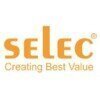
Asked in Selec Controls

Q. What is the function of a capacitor?
Capacitor stores electrical energy in an electric field.
Capacitor is an electronic component that stores electrical energy in an electric field.
It consists of two conductive plates separated by a dielectric material.
Capacitors are used in various electronic circuits for filtering, timing, tuning, and power conditioning.
They are also used in power factor correction, motor starting, and energy storage applications.
Examples of capacitors include ceramic, electrolytic, tantalum, ...read more

Asked in Incheon Motors

Q. What are the differences between IC engine vehicles and EV vehicles?
IC engine vehicles use combustion for power, while EVs rely on electric energy stored in batteries.
IC engines burn fuel (e.g., gasoline, diesel) for power; EVs use electric motors powered by batteries.
IC engine vehicles emit greenhouse gases; EVs produce zero tailpipe emissions.
Maintenance for IC engines often involves oil changes and exhaust system checks; EVs require less maintenance due to fewer moving parts.
Examples of IC engine vehicles include Ford Mustang and Toyota Co...read more


Q. What are the major issues related to paint?
A major paint issue refers to a significant problem or defect in the application or quality of paint on a surface.
Major paint issues can include peeling, cracking, blistering, or fading of paint.
Improper surface preparation, low-quality paint products, or incorrect application techniques can lead to major paint issues.
For example, if paint starts peeling off a wall within a short period of time after application, it indicates a major paint issue.

Asked in Brembo Brake India

Q. How do you measure productivity?
Productivity measures the efficiency of production, often defined as output per unit of input over a specific period.
Productivity can be calculated as total output divided by total input, e.g., units produced per labor hour.
In a factory, if 100 widgets are made in 10 hours, productivity is 10 widgets/hour.
Higher productivity can lead to increased profitability and competitiveness in the market.
Factors affecting productivity include technology, workforce skills, and management...read more

Asked in Tata Motors

Q. What is the least count of a vernier caliper?
The least count of a vernier caliper is the smallest measurement it can accurately read, typically 0.02 mm or 0.01 mm.
The least count is calculated as the difference between one main scale division and one vernier scale division.
For a standard vernier caliper, the least count is often 0.02 mm (or 0.001 inches).
Example: If the main scale has divisions of 1 mm and the vernier scale has 50 divisions that cover 49 mm, the least count is 0.02 mm.
A smaller least count allows for mo...read more

Asked in UTL Solar

Q. What are the different types of semiconductors?
Semiconductors are materials that have electrical conductivity between that of a conductor and an insulator.
Semiconductors are used in electronic devices like transistors, diodes, and integrated circuits.
Common semiconductor materials include silicon, germanium, and gallium arsenide.
Semiconductors can be doped to change their electrical properties, such as adding impurities to increase conductivity.
Asked in Integrit Energies

Q. What is a solar panel?
Solar panels are devices that convert sunlight into electricity by using photovoltaic cells.
Solar panels are made up of photovoltaic cells that capture sunlight and convert it into electricity.
They are commonly used to generate renewable energy for residential, commercial, and industrial purposes.
Solar panels are mounted on rooftops or in open fields to maximize exposure to sunlight.
They are environmentally friendly and help reduce reliance on fossil fuels for electricity gen...read more

Asked in Maruti Suzuki

Q. Whats is Air braking, Types of Wheels
Air braking is a braking system used in vehicles that relies on compressed air to slow down or stop the vehicle. Types of wheels include steel wheels, aluminum wheels, and alloy wheels.
Air braking uses compressed air to apply pressure to the brake pads or shoes, which then press against the wheels to slow down or stop the vehicle.
Types of wheels include steel wheels, which are durable and cost-effective, aluminum wheels, which are lightweight and offer better fuel efficiency,...read more

Asked in Zydus Lifesciences

Q. What is the full form of PLC?
PLC stands for Programmable Logic Controller, a digital computer used for automation of industrial processes.
PLCs are used to control machinery on factory assembly lines.
They can automate processes like mixing, packaging, and material handling.
Example: A PLC can control the timing and sequence of a conveyor belt.
PLCs are programmed using ladder logic or other programming languages.
They are essential in industries like manufacturing, oil and gas, and water treatment.
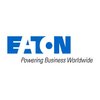
Asked in Eaton

Q. What is a fuse and what are its benefits?
A fuse is a safety device that protects electrical circuits by breaking the circuit when excessive current flows through it.
Prevents overheating: Fuses stop electrical fires by breaking the circuit when current exceeds safe levels.
Easy to replace: Once a fuse blows, it can be easily replaced, restoring functionality without complex repairs.
Cost-effective: Fuses are inexpensive compared to circuit breakers, making them a popular choice for home and industrial use.
Example: A 15...read more
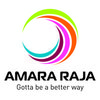
Asked in Amara Raja Electronics

Q. What is a LAN network?
LAN stands for Local Area Network, which is a computer network that connects devices within a limited area.
LAN is a type of network that is used to connect devices within a limited area such as a home, office, or school.
It allows devices to communicate with each other and share resources such as printers and files.
LAN networks are typically faster and more secure than wide area networks (WANs) because they are confined to a smaller area.
Examples of LAN technologies include Et...read more
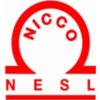
Asked in Nicco Engineering Services

Q. How would you convert a 52cm wire into a circular shape?
To convert a 52cm wire into circular wire, we need to calculate the circumference and then divide it by pi to get the diameter.
Calculate the circumference of the wire using the formula 2*pi*r, where r is the radius
Divide the circumference by pi to get the diameter of the circular wire
The formula for the diameter is d = c/pi, where d is the diameter and c is the circumference
In this case, the length of the wire is given as 52cm, so we can calculate the radius and diameter acco...read more

Asked in Force Motors

Q. What is measuring instruments.
Measuring instruments are tools used to quantify physical properties such as length, weight, temperature, and pressure.
Measuring instruments are used to obtain accurate and precise measurements of physical quantities.
Examples of measuring instruments include rulers, thermometers, scales, and pressure gauges.
Measuring instruments can be analog or digital, and may require calibration to ensure accuracy.
Measuring instruments are essential in many fields, including science, engin...read more

Asked in Force Motors

Q. What is the clearance of a punch?
Clearance of punch refers to the gap between the punch and die in a punching operation.
Clearance of punch is important for achieving accurate and clean cuts in a punching operation.
The clearance should be set based on the material being punched and the thickness of the material.
Too little clearance can result in a rough cut and damage to the punch and die, while too much clearance can result in burrs and a poor quality cut.
For example, when punching a thin sheet of metal, a c...read more

Asked in Exide Industries

Q. What is a battery?
A battery is a device that stores chemical energy and converts it into electrical energy to power electronic devices.
Batteries come in various sizes and types, such as alkaline, lithium-ion, and lead-acid.
They are commonly used in electronic devices like smartphones, laptops, and cars.
Batteries consist of one or more cells that contain electrolytes and electrodes.
When a battery is connected to a circuit, chemical reactions occur within the cells to produce electricity.
Recharg...read more

Asked in Brembo Brake India

Q. How many microns are in 1 cm?
1 cm equals 10,000 microns, as 1 micron is one-thousandth of a millimeter.
1 cm = 10 mm, and 1 mm = 1,000 microns.
Therefore, 1 cm = 10 mm x 1,000 microns/mm = 10,000 microns.
Microns are often used in fields like microscopy and materials science.

Asked in Brembo Brake India

Q. What type of gauges
There are various types of gauges used in the field of engineering and technology.
Pressure gauges
Temperature gauges
Flow gauges
Level gauges
Vacuum gauges
Humidity gauges
Force gauges
Torque gauges
Thickness gauges
Dial gauges
Digital gauges

Asked in Brembo Brake India

Q. How many Gauges
The question is unclear. Please provide more context.
Please provide more information about what gauges you are referring to.
Are you asking about gauges in a specific industry or field?
Without more context, it is impossible to answer this question accurately.

Asked in UTL Solar

Q. Kinds of solar pannel.
There are mainly three types of solar panels: monocrystalline, polycrystalline, and thin-film.
Monocrystalline solar panels are made from single-crystal silicon and are known for their high efficiency.
Polycrystalline solar panels are made from multiple silicon crystals and are more affordable but slightly less efficient than monocrystalline panels.
Thin-film solar panels are made by depositing a thin layer of photovoltaic material onto a substrate and are lightweight and flexib...read more

Asked in UTL Solar

Q. Working of power genaretion.
Power generation involves converting mechanical energy into electrical energy through various methods such as steam turbines, hydroelectric dams, and wind turbines.
Power generation involves the conversion of mechanical energy into electrical energy.
Common methods of power generation include steam turbines, hydroelectric dams, and wind turbines.
Steam turbines use steam to drive a generator, converting thermal energy into mechanical energy.
Hydroelectric dams use the force of fl...read more

Asked in Tafe Motors & Tractors

Q. What are DC motors?
DC motors are electric motors that operate using direct current (DC) power sources.
DC motors convert electrical energy into mechanical energy
They have a rotating armature and a stationary field magnet
Common types include brushed DC motors and brushless DC motors
Used in various applications such as electric vehicles, robotics, and industrial machinery
Interview Experiences of Popular Companies


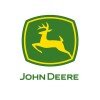





Reviews
Interviews
Salaries
Users

















